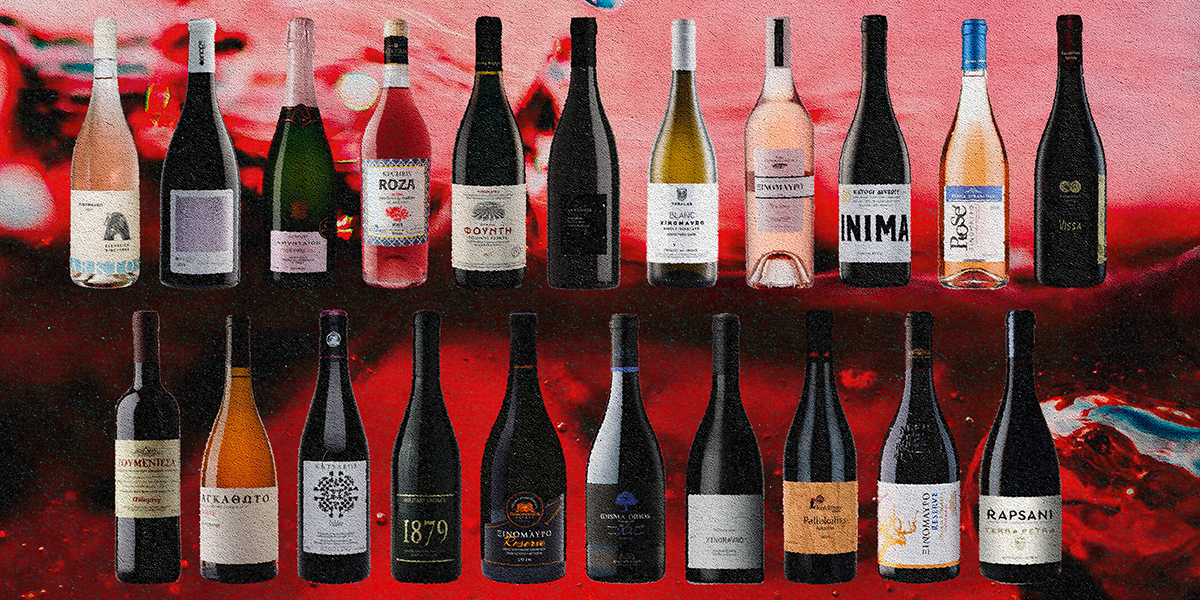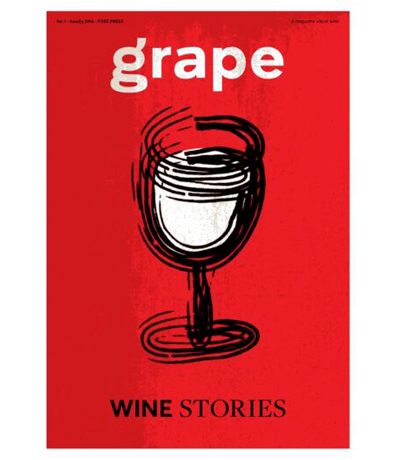

Spoiler alert! they should matter to everyone.
If you’re reading this, it is highly likely that you are in Greece and you love wine. If you’re not a statistical anomaly, and if it’s not too early to drink alcohol, then put the magazine (or the tablet, or the smartphone) down, go grab a glass of wine made from a Greek grape variety, come back, make yourself comfy, and read on…
A few months ago, I was talking with an executive of the company who runs duty-free shops in Greek airports and, naturally, the conversation turned to sales of wines. “We see more and more people buying a bottle of Greek wine on their way out of the country,” he said. I was delighted! The news was great! But, for no apparent reason, I went on to ask, “What are they buying?” Without hesitation, he said, “More than 75% international grape varieties.”
My smile faded. I was shocked. Buying wine from duty-free shops in airports is a notoriously challenging thing to do. A wine bottle is heavy. It clinks and clanks. The air stewards will insist, if they spot you, that you not put it in the overhead compartments, and nobody really wants to spent a long flight with a bottle rolling around their feet or stopping a good stretch of the legs. What’s more, it’s fragile and, if it breaks, it will create a mess. On top of which, if there’s a connecting flight in your future with an extra security check, you really don’t know if the bottle will make it through.
So, it takes a lot of dedication to grab a bottle on your way back home. It’s logical to assume that these people had a nice experience with Greek wine – they enjoyed a glass or two, and were pleased enough to try and emulate this experience in their natural habitat, or gift it to someone. And then, there they stand, fully determined to take a bottle of Greek wine on board, and the question is: “Shall we get the Xinomavro or the Greek Merlot?” And, apparently, Merlot comes out ahead more often than not.
I do understand the underlying issues. Greek varieties are hard to pronounce, and you don’t want to sound like you’re having a stroke while presenting the wine to fellow diners. Wine is, for most people, a most complex product, which means that Greek wine is an impossibly complex sub-genre, and so familiarity is important.
Yes, but still, why?
I urge you to put more faith in wines made from these varieties; here are just some of the reasons to do this.
↑ You’ll be drinking a piece of history. The sheer range of the autochthonous grape varieties of a wine-producing country is directly related to the length of its wine history. You go to a New World country, where grapes have been grown for a few centuries, and you get forty or so vine varieties. You come to Greece, and we’ve identified about 200, with more to be discovered in isolated, old vineyards – experts say the final number will pass the 300 mark. Even Italy, producing more than twenty times the amount of wine that Greece does, boasts less than four times that number of cultivars.
↑ You’ll be preserving the heritage. Since these vines have been around for millennia, they need some support from the marketplace. Like the “heirloom tomatoes” kind of support: you gain in taste, they gain in survival. That being said, these wines will make you a whole lot happier than a tomato will.
↑Go beyond the obvious. In many parts of the wine world, things can get a bit stale, or, at least, homogeneous. Boredom prevails if you taste only the famous grapes, the Chardonnays and the Sauvignons out there. Greek varieties have unique tastes that will surprise you. The more you taste, the more you will find the grapes that will make you fall in love.
↑ Greek grape varieties have been selected for pairing. The food friendliness of these wines has to be tested and tasted to be believed. We Greeks have always had food with our wine, and wine with our food (unless it’s breakfast, or should I say a workday breakfast?). So, as the result of co-evolution for millennia, Greeks preferred those vines that have the capacity to produce wines that complement food while providing refreshment. These wine styles emerged out of real-life trial-and-error, not out of a marketing plan.
↑ Choosing Greek varieties shows you’re in the know. Everyone can pick a wine list and go for the house white, or the Chablis. Be brave and life will reward you. Go for the unpronounceables, and I bet that a single drop will not be left in the bottle.
↑ Gear up for climate change. More and more wine producers around the world, in countries such as Australia, France, South Africa, or in Italy, are planting Greek varieties. There are many reasons for this, from pure quality to differentiation, but getting prepared for climate change is possibly the most important. Many vine-growing regions are getting hotter and drier, and traditional grapes are having a hard time coping with the climate shift. Here come the Greek vines, which have been flourishing in hot, dry places for eons.
And, since Greek varietals are already marching out of Greece to dominate the world, why not taste these gems while you can still afford them?
Με την εγγραφή σας στη λίστα των παραληπτών θα λαμβάνετε το newsletter του grape!





Με την εγγραφή σας στη λίστα των παραληπτών θα λαμβάνετε το newsletter του grape!